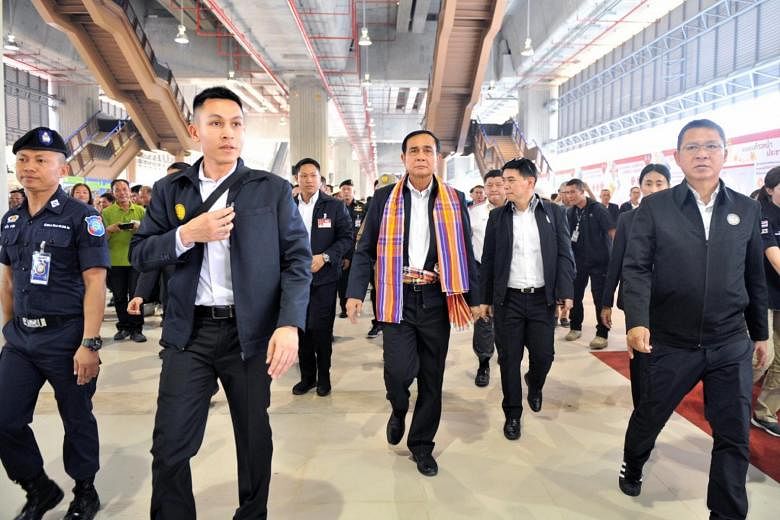JAKARTA - Lawmakers from four South-east Asian countries on Thursday (March 14) urged the Thai military junta to lift restrictions on freedom of expression to allow for free and fair campaigning ahead of a general election on March 24.
In a statement, 52 lawmakers from four countries - including 24 members of the Asean Parliamentarians for Human Rights (APHR) body - also called on the military to let the next civilian government carry out its mandate free from interference.
The four countries were Indonesia, Malaysia, Timor-Leste, and the Philippines.
"While Thailand is in the midst of an election campaign, parties, candidates and voters still have to watch what they say carefully. A true democracy depends on people being able to form an opinion without fear of retaliation or repercussion, something that is just not possible in Thailand today," said Mr Charles Santiago, the chair of the APHR and a member of the Malaysian Parliament.
"If the election is to have any legitimacy or credibility, the junta must immediately remove all remaining restrictions on freedom of expression and ensure the release of all those imprisoned solely for their peaceful political views," he added.
Mr Santiago noted the military's moves to cement a dominant role for itself in Thai politics, irrespective of the election outcome, for years to come through a "rather anti-democratic Constitution".
"This will seriously affect the ability of any future government to make independent decisions and carve out its own policy agenda - and prevent Thailand from digging itself out of the destructive cycle of political unrest and coup d'état," he said.
Thailand goes to the poll booth on March 24, ending almost five years of military rule since a coup in May 2014. The junta has relied on a range of repressive laws and decrees - such as the lèse majesté law, the Computer Crimes Act, and the Criminal Code - to quell dissent and jail opponents.
While some of the restrictions on campaigning have been relaxed in recent months, political parties still face egregious laws and decrees.
For example, on Feb 28, the military-appointed National Legislative Assembly passed a new Cyber Security Act that hands authorities sweeping powers to access computer data and networks, or to summon individuals for questioning without warrants in case of "serious cyber threats".
And on March 7, the Constitutional Court ordered the dissolution of political party Thai Raksa Chart and banned its executive board members from politics for ten years.
Mr Thanathorn Juangroongruangkit, the leader of the new Future Forward party, could also face up to five years in jail on charges under the Computer Crimes Act for a speech critical of the military.
"Threatening a politician with jail time for expressing peaceful political opinions on Facebook not only flouts international law, it will also send a chilling message to other candidates not to speak their minds," said Mr Teddy Baguilat, an APHR board member and a member of the House of Representatives in the Philippines.
"The Thai authorities must immediately drop all politically-motivated charges against lawmakers, journalists, activists and others who have done nothing but express peaceful opinions," he said.
"In Indonesia, we have painful memories of what it's like to live under military rule, as do people in many other South-east Asian countries, including Thailand. The Thai people and civilian leaders must finally be allowed to chart their own future without military interference," said Ms Eva Sundari, an APHR board member and MP from Indonesia.

